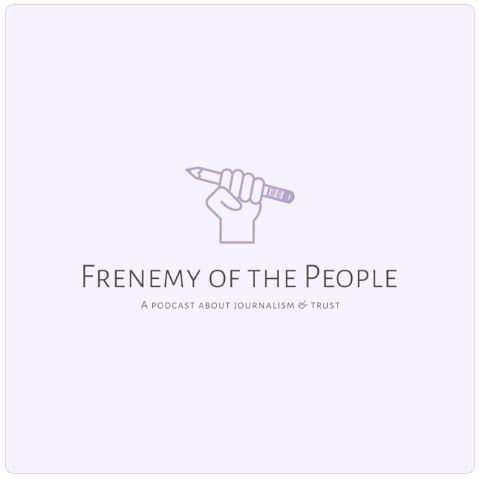This week is Media Literacy Week in the U.S., and that means lots of people will talk about how important it is to be able to tell the difference between facts and fake news, especially online.
It’s true. It’s really important. But it’s always been difficult, and it’s becoming harder and harder as we get more and more of our information via social media. This problem is becoming increasingly apparent as we inch closer to the 2020 presidential election. If you aren’t obsessively reading about this (in which case, I envy you) you might have missed that Mark Zuckerberg, head of Facebook, recently said his platform will not be taking action against political ads that contain lies.
In statements last week, he said he’s really concerned about the “erosion of truth,” but he just can’t let Facebook be the arbiter of right and wrong by taking down political ads that contain false statements. One of his primary arguments is that the FCC requires radio and television stations to give candidates equal time, but Zuckerberg also likes to claim Facebook is not a media company… But it’s this “we’re not the arbiter of truth” piece that feels most troubling to me.
It’s a very familiar argument, similar to what I’ve heard from individuals who’ve decided they don’t trust any mainstream media source: “We can’t trust one arbiter of truth, so we really can’t trust any, and we’ll never now what’s ‘true,’ so why bother worrying about it?” Usually I would get a message like this after gently suggesting to an acquaintance or distant family member that a link to InfoWars or NaturalNews or Prager U might be misleading.
Sometimes journalists get a little resentful about this stuff, which, as a journalist, I get. But I also get not wanting to be condescended to about what’s “true,” and I get that there are so many information sources out there, it can be truly impossible to sift through it all without spending a lot of time and energy. I also get that some people might have that time and energy, but choose to spend it finding things that confirm what they already believe – it’s a free country, so I won’t try to talk you out of it.
But… I think that deep down most people really do care about facts, and really don’t like being lied to. Yes, politics is dirty, and media can be too. But throwing the proverbial baby out with the bathwater in these two areas is dangerous. Media is meant to hold the powerful accountable. Facebook can’t decide if it’s a member of the media, or one of the powerful, or both. It might feel like we, lowly civilians, can’t figure that out for them or do anything about it, but what I want you to think about on this media literacy day is that we can.
Media literacy doesn’t have to imply you’re illiterate about the media, or that you need to take some kind of formal class or workshop to understand what’s going on. For most people – people who want to know what’s true but are just a little overwhelmed – it’s about trusting your instincts.
Does a headline seem too good or bad or crazy to be true? It probably is. You can check by looking at the URL, reading the story, and clicking on links within it.
Are you skeptical of the way something is being framed? That’s great insight. You can read articles by other publications about the same topic to round out your exposure to the story and see what makes sense to you.
You’re still going to suffer from confirmation bias – we all want to believe what we want to believe. But I think being intentional about this, recognizing when we’re maybe understanding something based more on our wishes than the facts in front of us, will make all the difference.
It’s true – existentially, it’s hard to know what’s objectively, 100%, no-doubt true. But that’s not what media literacy is about. It’s about knowing what happened, who did it, and maybe why. Sometimes answering those questions takes more than one tweet or article or even one year of reporting and reading. That’s okay – that’s how it’s always been. Getting comfortable with not knowing some things for sure, but being pretty confident you’re following along, is half the battle.
Resources:
- Subscribe to The Flip Side, a newsletter that shows you how the right, left, and center are covering various big news items (especially political stuff). It doesn’t always make me feel like I know what’s true for certain, but it helps me understand better the way things are being framed and why.
- Take this News Literacy Quiz. Fun fact – I didn’t pass the first time I took it myself!
- Read these 8 ways to tell if a website is reliable.
- Subscribe to the news sources you use most, and/or sign up for their newsletters so you get the information right in your inbox, rather than through the filter of your social media feed.
